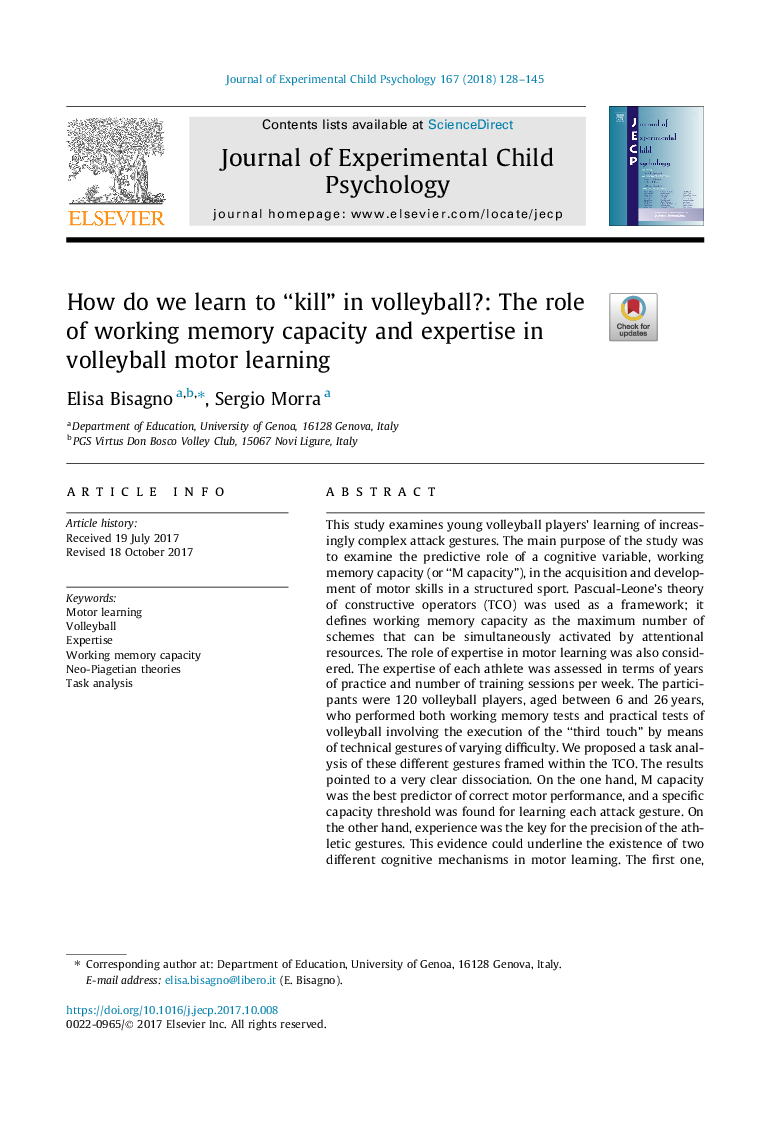| کد مقاله | کد نشریه | سال انتشار | مقاله انگلیسی | نسخه تمام متن |
|---|---|---|---|---|
| 7274100 | 1473445 | 2018 | 18 صفحه PDF | دانلود رایگان |
عنوان انگلیسی مقاله ISI
How do we learn to “kill” in volleyball?: The role of working memory capacity and expertise in volleyball motor learning
دانلود مقاله + سفارش ترجمه
دانلود مقاله ISI انگلیسی
رایگان برای ایرانیان
کلمات کلیدی
موضوعات مرتبط
علوم انسانی و اجتماعی
روانشناسی
روانشناسی رشد و آموزشی
پیش نمایش صفحه اول مقاله

چکیده انگلیسی
This study examines young volleyball players' learning of increasingly complex attack gestures. The main purpose of the study was to examine the predictive role of a cognitive variable, working memory capacity (or “M capacity”), in the acquisition and development of motor skills in a structured sport. Pascual-Leone's theory of constructive operators (TCO) was used as a framework; it defines working memory capacity as the maximum number of schemes that can be simultaneously activated by attentional resources. The role of expertise in motor learning was also considered. The expertise of each athlete was assessed in terms of years of practice and number of training sessions per week. The participants were 120 volleyball players, aged between 6 and 26â¯years, who performed both working memory tests and practical tests of volleyball involving the execution of the “third touch” by means of technical gestures of varying difficulty. We proposed a task analysis of these different gestures framed within the TCO. The results pointed to a very clear dissociation. On the one hand, M capacity was the best predictor of correct motor performance, and a specific capacity threshold was found for learning each attack gesture. On the other hand, experience was the key for the precision of the athletic gestures. This evidence could underline the existence of two different cognitive mechanisms in motor learning. The first one, relying on attentional resources, is required to learn a gesture. The second one, based on repeated experience, leads to its automatization.
ناشر
Database: Elsevier - ScienceDirect (ساینس دایرکت)
Journal: Journal of Experimental Child Psychology - Volume 167, March 2018, Pages 128-145
Journal: Journal of Experimental Child Psychology - Volume 167, March 2018, Pages 128-145
نویسندگان
Elisa Bisagno, Sergio Morra,